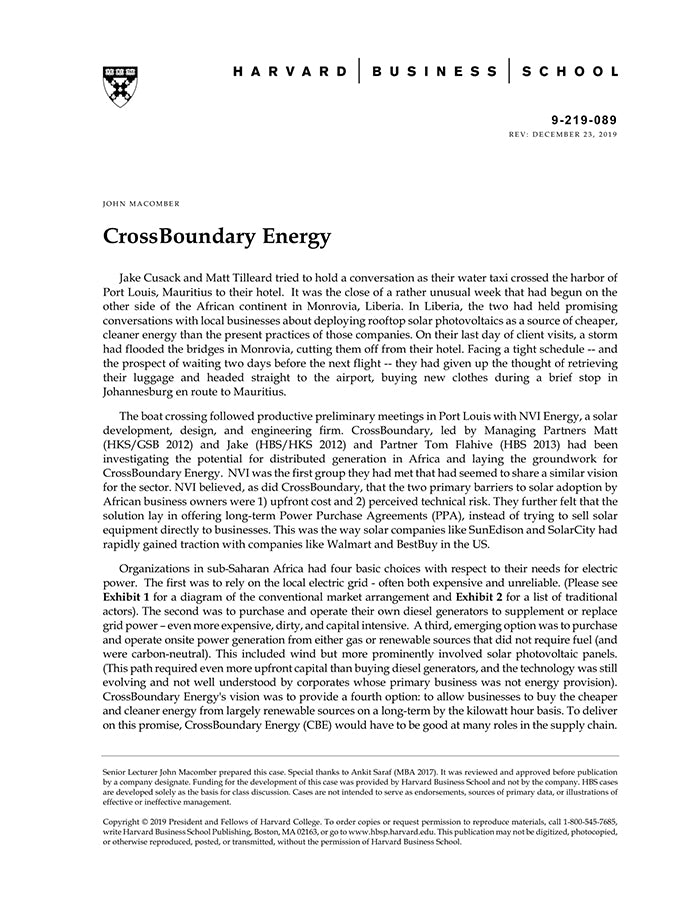CrossBoundary Energy
受取状況を読み込めませんでした
Company provides renewable energy consulting, investment, and development in sub-Saharan Africa. What nations and what role to play in the value chain? Almost 500 million people are without electricity in sub-Saharan Africa. Governments and public utilities are challenged to bring generation and distribution to most of them. Considerable promise exists in "off-grid" or "mini-grid" technologies, notably using renewable energy from wind and photovoltaics in areas that have plentiful supplies of both yet limited access to traditional fuels due to other infrastructure constraints. Cross-Boundary is an experienced consulting firm and transaction facilitator run by several Harvard and Stanford MBAs, some with recent military experience. In the case, the company needs to analyze and select which of two nations in Africa to enter next (Tanzania or Ghana) based on many aspects of each nation, has to decide which kinds of customers to serve who will compensate it directly for electricity, and whether to partner with developers and contractors or build that capability in-house. Critically, the company has to evaluate as it matures whether it should be a) an aggregator of capital from multiple investing and lending sources, investing in a vendor agnostic manner into multiple energy developers and projects which it identifies from afar; or b), whether to be primarily a large scale multi-national competitive energy developer and project delivery company needing to attract capital from many sources, all of whom are selecting between several other developers and investment opportunities. What is their key value added and where can they build a defensible strategy? Which one best accomplishes the goal of matching up money and projects to help illuminate Africa?
【書誌情報】
ページ数:20ページ
サイズ:A4
商品番号:HBSP-219089
発行日:2019/1/31
登録日:2020/1/23


